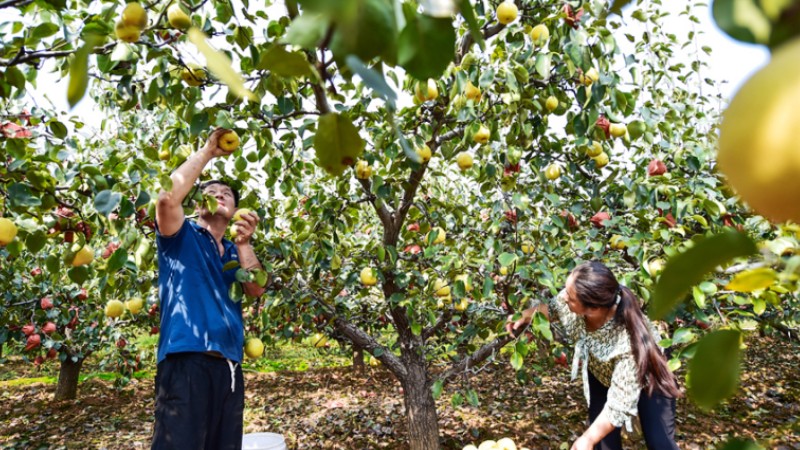First taikonaut ready for more spaceflights
BEIJING, Oct. 16 (Xinhua) -- China reached a historic milestone on Oct. 15, 2003, when taikonaut Yang Liwei stepped out of the Shenzhou-5 reentry capsule after spending just over 21 hours orbiting Earth in space.
Sunday marks the 20th anniversary of his flight into space aboard the Shenzhou-5 spacecraft. The mission made China the third country in the world to achieve manned space capabilities, and entered Yang into the history books as the first Chinese space traveler.
In a recent interview with Xinhua, Yang, who is now the deputy chief designer of China's manned spaceflight project, said that his memories of the last two decades are full of "pride and admiration."
"When I saw more colleagues realize their flight dreams and reunite in the Tiangong space station, I felt happy and so envious of them," Yang said.
He also listed several other advancements that have made him "jealous" -- spaceflights have lengthened from one day to six months, the number of taikonauts in orbit has risen from one to six, and his old "space home" has become more comfortable, expanding from 6 cubic meters to 110 cubic meters.
Yang also noted that several technical difficulties have been overcome, such as space-Earth shuttling and orbital docking, which enable in-orbit taikonauts to watch live sports events and make phone calls with their families at any time.
But many of these technological breakthroughs benefited from the contributions of taikonauts, and Yang has certainly been a contributor.
When his rocket lifted to an approximate height of 30-40 kilometers above the ground, for example, Yang felt it begin to vibrate violently. "The fierce vibration was shattering my body, and the pain grew unbearable," Yang recalled.
After his return to Earth, Yang reported the abnormal vibrations during the rocket's ascent to his fellow scientists, who resolved the issue before the Shenzhou-6 launch.
To his delight, more people are now joining the taikonaut ranks. Yang revealed that some 100 candidates for the fourth group of taikonauts have passed the preliminary selection process, with about 10 coming from Hong Kong or Macao.
"Shortly, there will be astronauts from other countries conducting scientific experiments aboard the Chinese space station," Yang said, noting that Tiangong serves as a national space experiment platform and brings benefits to humanity as a whole.
And future taikonauts will go further, as China has launched a manned lunar exploration project and made breakthroughs in key technologies related to new-generation manned rockets and spacecraft.
When asked if he would undertake more spaceflight missions, the 58-year-old taikonaut said, "I'm always ready for the nation's call."
Photos
Related Stories
- Tianzhou-5 cargo craft re-enters atmosphere after completing mission
- China's Tianzhou-5 cargo spacecraft separates from space station combination
- India's Chandrayaan-3 spacecraft lands on moon
- China's manned spacecraft launch contributes to world's aerospace industry, says Russian expert
- Hainan commercial spacecraft launch site under construction in Wenchang
Copyright © 2023 People's Daily Online. All Rights Reserved.









